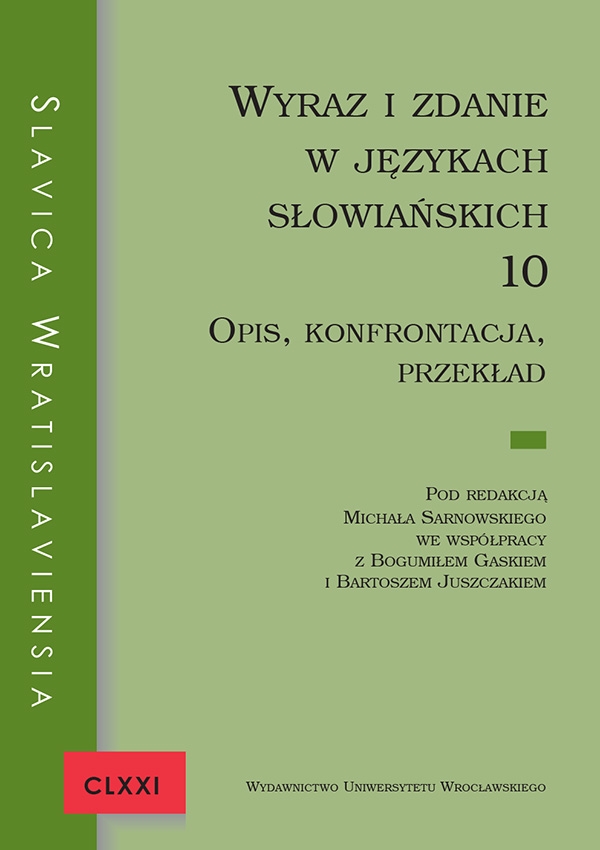

Artykuły (bez nazwy działu)

The subject of this article is fascination as a type of communicative influence exerted on the addressees, the purpose of which is to attract or to retain attention to the message and/or its source. In public communication, fascination serves to activate the processing of semantic information, to create a positive image of the source of information and its preferences in the face of increasing market competition, and to prolong communicative contact as an opportunity to distribute advertising copy. Fascination is one of the characteristics of modern media culture. Fascination as a stylistic phenomenon is based on different means, which fall into four categories: the language code, the cognitive system mental thesaurus, world view, the system of social relations, and the physical environment. On the Internet, semantic information is subordinated to the principle of attractiveness. This concerns such characteristics as preference for events in the sphere of politics, occasionality, sensationalism, dangerous traits, and an intracultural attitude.
Fascynacja jako kategoria komunikacji w internecie na przykładzie rosyjskiego portalu Rambler.ru
Tematem artykułu jest fascynacja jako rodzaj komunikatywnego wpływu na adresatów, którego celem jest przyciągnięcie lub zwrócenie uwagi na przekaz i/lub jego źródło. W komunikacji publicznej fascynacja służy aktywacji przetwarzania informacji semantycznej, stworzeniu pozytywnego wizerunku źródła informacji i jego preferencji w obliczu rosnącej konkurencji rynkowej oraz prolongacji kontaktu komunikacyjnego jako sposobu emitowania reklam. Fascynacja jest jedną z cech współczesnej kultury medialnej. Jako zjawisko stylistyczne fascynacja jest realizowana za pośrednictwem różnych środków, które dzielą się na cztery kategorie: kod językowy, system kognitywny tezaurus mentalny, światopogląd, system relacji społecznych i środowisko fizyczne naturalne. Informacja semantyczna jest w internecie uwarunkowana zasadą atrakcyjności. Dotyczy to takich cech, jak preferowanie wydarzeń w świecie polityki, okazjonalność, sensacja, drażniące treści oraz priorytet treści wewnątrzkulturowych.